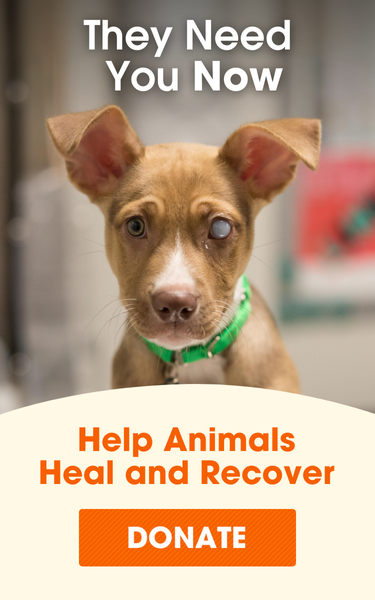
What to Do If Your Dog Gets Sprayed by a Skunk

While skunks are generally docile creatures, they do have a very potent method of fending off people or animals who bother them. Unfortunately, some dogs don’t get the hint soon enough and become the target of a skunk’s spray. There is nothing fun about dealing with a dog who has been “skunked,” but our experts at the ASPCA Animal Poison Control Center (APCC) have some advice to help make the aftermath a little bit easier.
Signs and Symptoms
If your dog has been sprayed by a skunk, the first thing you notice will likely be the smell. However, there are several other signs your pet may exhibit if sprayed by a skunk:
- Drooling
- Vomiting
- Red and/or swollen eyes
- Rolling
- Face rubbing
- Sneezing
- Temporary blindness
These signs are typically seen immediately or within a couple of hours of your pet being sprayed. Symptoms like lethargy, weakness, change in urine color and pale or brown gums may take up to a few hours or even days to appear. These symptoms are rarer, but if they appear, you should take your pet to a veterinarian right away. The compounds in skunk spray are irritating and, in some cases, can result in damage to a dog’s red blood cells, potentially leading to anemia.
Steps to Take
The first order of business after your pet gets sprayed should be a bath — but regular shampoo is not going to cut it! Create a mixture out of the following ingredients:
- 1 quart (4 cups) of 3% fresh hydrogen peroxide
- ¼ cup baking soda
- 1-2 teaspoons of liquid soap (dishwashing detergent)
Lather your pet in this mixture and wait five minutes, then rinse with copious amounts of water. Repeat if necessary. It is possible this may bleach your pet’s hair, but it is not toxic to their skin. Note that this mixture doesn’t store well, so you will need to make a fresh batch if your pet gets sprayed again. Never put this mixture in a closed container.
If your pet’s eyes seem to be affected, rinsing them with copious amounts of tepid water for 20 minutes may relieve some discomfort.
Prevention Is Key
No one wants their pet to be sprayed by a skunk. Fortunately, there are many things you can do to discourage skunks from coming near your home:
- Make sure there is no easy access to pet food or bird seed. Use well-sealed containers and latched lids when necessary.
- Remove or prevent access to wood piles and areas underneath decks and houses, where skunks like to den.
- Invest in motion-activated lights or sprinklers, as skunks do not like light or noise.
- Sprinkle kitty litter in front of a suspected den or hole, or stuff paper, leaves or straw into the hole to let the skunks know that it is not a good place for them.
In the United States, skunks can be carriers of rabies. If you suspect your pet has been bitten by a skunk, it is best to contact a veterinarian right away.
If you think that your pet may have been exposed to something potentially toxic, call your veterinarian or the ASPCA Poison Control Center at (888) 426-4435 immediately.
